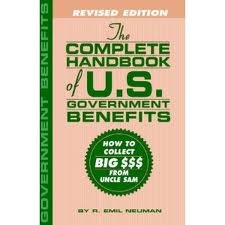OK, anecdote for anecdote. I was clearing out my email at work today and while deleting one of the pre-Christmas emails about the office Giving Tree, noticed that one of the kids had asked for (and I assume gotten) a pair of Nikes. So now we've canceled each other out.

What's the alternative?
Sumptuary law - Wikipedia, the free encyclopedia so it's illegal for poor people to wear clothing "above their station in life"?
It does to me. The one example we've had presented in the thread is that of tryan's tenant. Taking tryan's remarks at face value, this lady is really disabled, not a scammer. Under the rules of the program, she qualifies to receive benefits. Let me pose a hypothetical question:if you had a parent, relative or friend who was disabled and living on a limited income from government benefits, would you perhaps supplement it with extra money for gas or groceries, or nicer clothes than they would be able to afford otherwise? Or even give them your old car instead of trading it in when you buy a new one? Should you be prohibited from doing those things by the rules of the program? Do you really want the micromanagement, the reams of additional regulations, that would be required to keep track of every bit of supplement that people get, who it came from and whether it's OK for that person to provide financial assistance to the person on disability income or not? It's OK to buy them gas but not to pay their mechanic's bill. It's OK to buy them a jacket but not a party dress. It's OK to give them a beater, but not a nice car that runs well. And on and on and on. Where would it end? Or, to cut the cost of administration, should it simply be forbidden for anyone to provide any financial assistance whatsoever to any recipient of government benefits? It may be in very questionable taste (to put it no more strongly than that) for tryan's tenant to be driving around in a fancy car wearing a bunch of bling that her boyfriend bought her, but I don't see how it would be possible to keep her from doing that without also preventing you from helping your family member or friend in the same situation in what (I assume) most people would consider a completely unobjectionable way. I don't see how it would be possible either, to determine accurately whether an item in the possession of a person on government benefits is their property or borrowed, or cost too much, or came from a permissible source, without bending the 4th Amendment into a pretzel.
There is no way to know where the shoes came from. Maybe they were from a sale, or a Giving Tree, or maybe the person getting benefits just allocated the money they got in a way you wouldn't approve of. Maybe they decided they'd rather do without one meal a day than do without the fancy shoes. That's crazy, but should it be considered fraudulent? It seems to me though that there is an unspoken assumption here that most people who receive government benefits are frauds. That is an assumption which needs to be supported by more than anecdotes, even very credible ones, before being accepted as factual. I know it wasn't true of me, when I was receiving government benefits, so I don't assume it is true of others in the same situation I was in.
How is that any different than people here discussing how to get the maximum number of dollars from Social Security? Should there be a stigma attached to that? How is that any different from the E-R commenters (about half of those who responded on the thread, IIRC) who essentially told a poster a few weeks ago to go ahead when he asked whether he should accept a property tax exemption, aimed at low-income seniors, that he qualified for but didn't really need? Yeah, there is almost certainly some fraud on these programs, and undoubtedly a lot of room for better design and management so the programs encourage people to move up and off rather than sit there, but it seems to me that there is also an element of scapegoating involved, a seeking for someone it's OK to feel superior to and to look down one's nose at. If this is really about benefiting welfare recipients by getting them to the point where they're able to stand on their own feet economically, why aren't there threads here making similar suggestions to benefit farmers, with an itemized chart of the various kinds of subsidies a farmer may get, and suggesting that market forces should be allowed to operate and force the price of corn or wheat down until it finds its own level, as was suggested for the labor of welfare recipients earlier in the thread?


